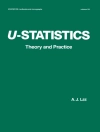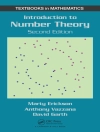Symmetry is a classic study of symmetry in mathematics, the sciences, nature, and art from one of the twentieth century’s greatest mathematicians. Hermann Weyl explores the concept of symmetry beginning with the idea that it represents a harmony of proportions, and gradually departs to examine its more abstract varieties and manifestations—as bilateral, translatory, rotational, ornamental, and crystallographic. Weyl investigates the general abstract mathematical idea underlying all these special forms, using a wealth of illustrations as support. Symmetry is a work of seminal relevance that explores the great variety of applications and importance of symmetry.
关于作者
Hermann Weyl (1885–1955) was one of the twentieth century’s most important mathematicians, and a key figure in the development of quantum physics and general relativity. He was a member of the Institute for Advanced Study in Princeton and the author of many books.












